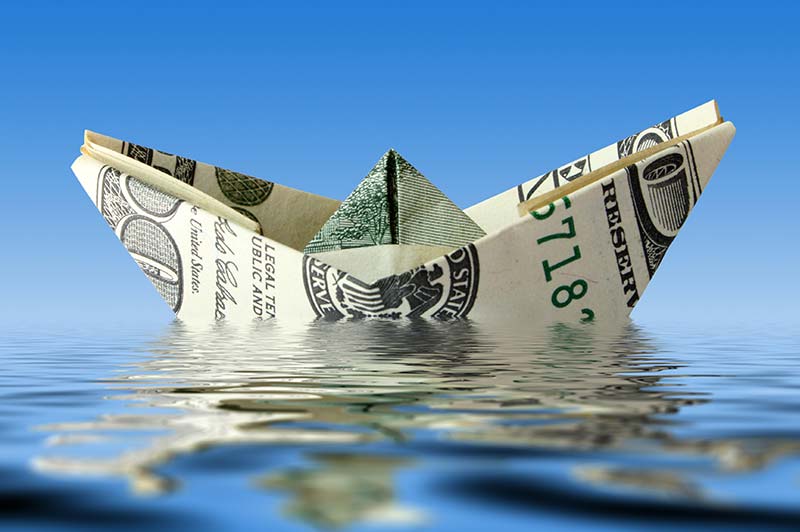
Liquidity in business has nothing to do with water. It describes how quickly you can sell an asset and convert it into cash. Cash is the most liquid asset of all. Real estate, in contrast, is quite illiquid because it could take months to sell.
Liquidity is important to all businesses. It affects the company’s credit score and how much it can borrow. It’s a measure of whether the company can pay bills on time. It’s also one of many measures of the overall financial health of the business.
If the business sells items that take a long time to produce, liquidity can be extremely challenging and should be carefully managed. Examples include farms, wineries, breweries, automobile manufacturers, and biotech researchers. These industries must spend thousands of dollars months or even years before the final product is ready for sale; then it must be sold and collected before that initial investment (and hopefully a profit) are realized.
Liquidity Ratios
A couple of financial metrics can quantify the business’s liquidity. The current ratio is computed as follows:

The largest components of current assets include cash, cash equivalents (CD’s), accounts receivable, and any other asset that is expected to be converted to cash within one year. The largest components of current liabilities include credit card balances, accounts payable, bills due, interest payable, and the amount of any loan due within one year. Both current assets and current liabilities can be found on the balance sheet.
Generally, companies with a current ratio of less than 2:1 are considered less liquid, while companies with a current ratio of more than 2:1 are more liquid. However, current ratio values and whether they are “good” or “bad” vary by industry, so check out industry benchmarks to get a sense of where they should stack up.
Another measure of liquidity is the quick ratio. It measures how equipped a business is to meet its short-term obligations by taking its most liquid assets, cash equivalents, and using them to pay down current debt. Its formula is:

This ratio’s value should typically be 1:1.
Emergency Fund
A good common-sense measure to use to stay on top of the business’s liquidity is to build a healthy emergency fund. To calculate how much is needed, determine how much is typically spent each month. Get that number by reviewing a bank statement and summing all of the withdrawals including checks paid and online withdrawals. Do this for each bank account, and don’t forget to include other accounts such as PayPal if they are used for disbursements.
This should give a total spend per month. Go back a few months to calculate an average spend per month. The farther you go back, the more accurate the average will be, especially if there are a lot of large annual payments throughout the year.
Once the average monthly spend is determined, emergency funds should be a multiple of that spend. Three months’ worth should be the minimum amount in an emergency fund. If the company spends $50,000 per month on average, emergency funds should be $150,000 at a minimum.
An emergency fund will not only make the business more liquid; it will protect if disaster strikes. The average small business has less than 11 days of cash on hand. According to FEMA, 90 percent of small businesses that experience a disaster will fail within a year unless they can resume operations within five days. Having an emergency fund will increase the odds of the business continuing in spite of any hardship that may occur.
If you have questions for us about your business’s liquidity or starting an emergency fund, please feel free to reach out to Lucrum any time. We can help you determine a reliable plan, and give you confidence in the numbers.



